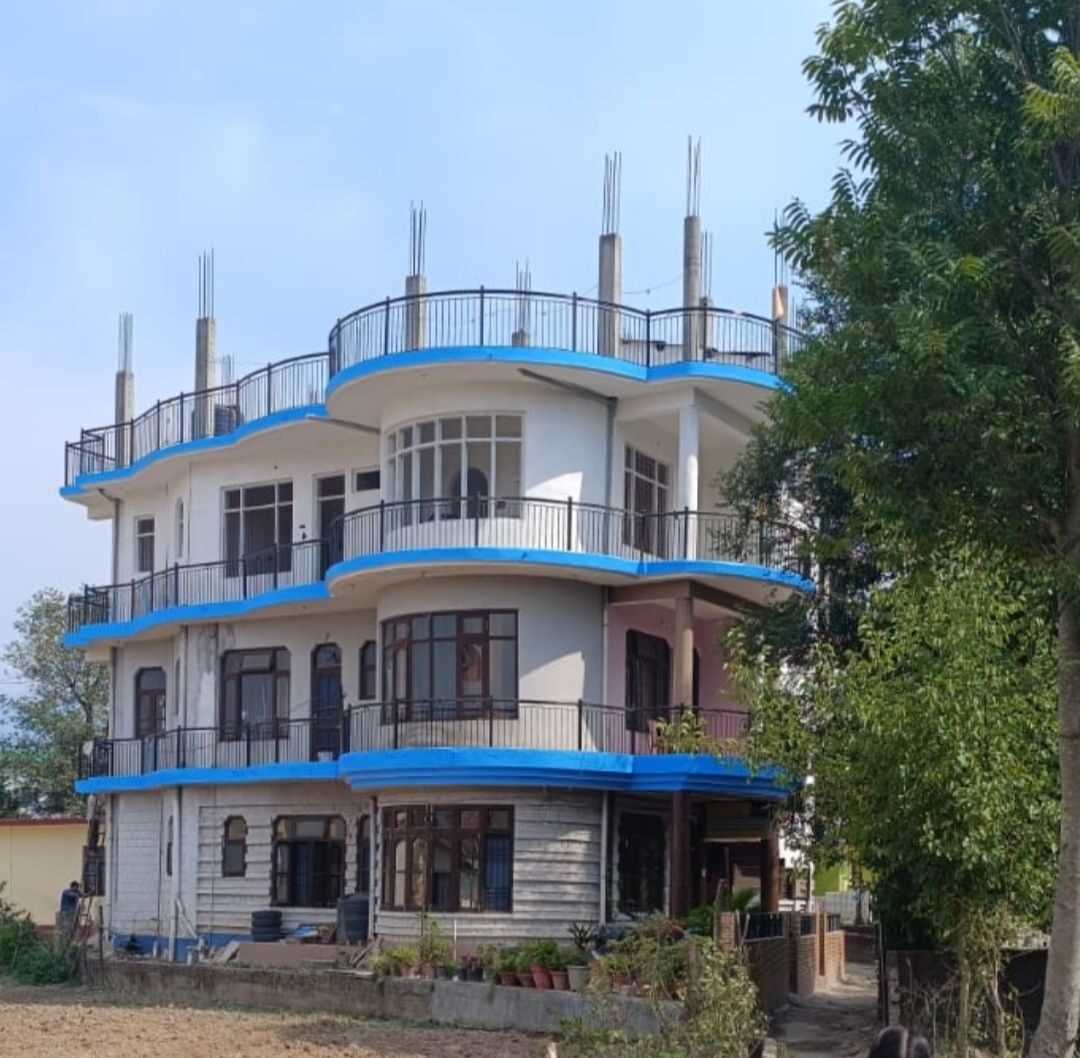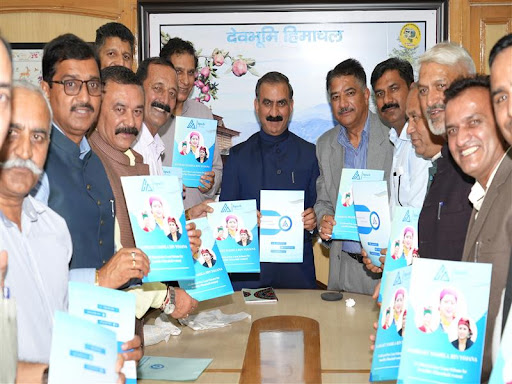Black Peak Expedition
Black Peak, also known as Kala Nag or Black Cobra, stands majestically as the highest and most iconic mountain in the Bandarpunch (Saraswati) range within the Garhwal Himalayas in Uttarakhand, India. Soaring to an elevation of 6,387 meters (20,955 feet), the Black peak Expedition presents a formidable challenge, demanding advanced climbing expertise and high-altitude trekking experience.


Overview
Specifically, it is situated within the Govind National Park, which is known for its stunning landscapes, diverse flora and fauna, and challenging trekking and mountaineering opportunities.Its distinctive shape, resembling a cobra’s head, adds to its mystique, making it a coveted destination for thrill-seeking mountaineers.
With a rich history dating back to the early 20th century, Black Peak witnessed its first attempts by British mountaineers and was eventually conquered by an Indo-Tibetan Border Police (ITBP) team in 1979. Since then, it has beckoned adventurers from around the globe, all enticed by its rugged terrain and awe-inspiring vistas.
According to local folklore, Black Peak holds significant mythological importance in the region, believed to be the abode of Lord Shiva, a revered figure in Hindu mythology. The mountain is also thought to be guarded by protective mountain deities.
Embarking on the Black Peak expedition takes trekkers through the pristine landscapes of the Govind National Park, an area teeming with diverse flora and fauna, providing a unique experience for nature enthusiasts. The trail winds through alpine meadows, pine forests, moraine ridges, boulders, and glacial basins, revealing breathtaking beauty at every turn. Trekkers navigate crevassed snowfields, lush green meadows, glaciers, thick forests, scattered streams, and miles of rocky moraines, offering a diverse and captivating trekking experience.
Short itinerary
Day 1: Arrival in Dehradun
- Arrive in Dehradun, the capital city of Uttarakhand, and get transferred to the base camp.
- Attend a briefing session, gear check, and meet the trekking team.
Day 2: Dehradun to Sankri (Drive)
- Drive from Dehradun to Sankri, the gateway to the trek.
- Enjoy scenic views during the journey.
Day 3: Sankri to Juda Ka Talab
- Trek from Sankri to Juda Ka Talab.
- Pass through dense forests, and charming meadows, and reach the beautiful Juda Ka Talab campsite.
Day 4: Juda Ka Talab to Kedarkantha Base
- Trek to Kedarkantha Base.
- Ascend through snow-covered trails, witnessing panoramic views.
- Camp at the Kedarkantha Base.
Day 5: Kedarkantha Base to Kala Nag Base Camp
- Trek to Kala Nag Base Camp, gradually gaining altitude.
- Camp amidst the serene surroundings.
Day 6: Acclimatization Day
- Spend the day acclimatizing to the high altitude.
- Short hikes around the base camp.
Day 7: Kala Nag Base Camp to Advance Base Camp (ABC)
- Trek to the Advance Base Camp (ABC) of Kala Nag.
- Navigate challenging terrains and set up camp at a higher altitude.
Day 8-11: Summit Attempt and Descend
- Begin the summit push, negotiating steep ascents and technical sections.
- Summit Black Peak (Kala Nag) and savor the achievement.
- Descend to the base camp and then back to Sankri.
Day 12: Reserve Day
- A buffer day in case of adverse weather conditions.
- Relax, explore the surroundings, or revisit specific locations.
Day 13: Sankri to Dehradun (Drive)
- Drive back to Dehradun, marking the end of the trekking expedition.
Day 14: Departure
- Depart from Dehradun, concluding the Black Peak Expedition.
Also read – https://himachal.blog/friendship-peak-himalayan-heights-to-lasting-bonds/
Do’s and don’ts of Black Peak Expedition
Do’s:
Spend time acclimatizing to the high altitude to reduce the risk of altitude sickness. Follow the recommended itinerary with gradual ascents.
Ensure you are in excellent physical condition. Engage in a pre-trek fitness routine to build stamina, strength, and endurance.
Conduct a thorough gear check before the expedition. Ensure all equipment, including climbing gear and clothing, is in good condition.
Join a guided expedition led by experienced and certified guides familiar with the terrain and potential challenges of Black Peak.
Stay well-hydrated and maintain a balanced diet. Proper nutrition is crucial for sustained energy during the trek.
Stay informed about the weather conditions. Be prepared for sudden changes in weather and pack accordingly.
Familiarize yourself with emergency procedures and carry necessary communication devices like a satellite phone or radio.
Obtain all necessary permits and adhere to local regulations. Respect the cultural and environmental norms of the region.
Don’ts:
Avoid rushing the acclimatization process. Ascend gradually to allow your body to adjust to higher altitudes.
Avoid trekking or climbing solo, especially in challenging terrains. Always be part of a group led by experienced guides.
Don’t overpack unnecessary items. Keep your backpack light and carry only essential gear to minimize physical strain.
Avoid disturbing local ecosystems. Stay on designated trails and respect the natural surroundings.
Don’t underestimate the difficulty of the expedition. Be mentally prepared for the challenges that high-altitude trekking and climbing present.
Don’t neglect emergency protocols. Know the evacuation procedures and be prepared to act swiftly in case of emergencies.
Trek Details :
- Trek Gradient: Easy-Moderate
- Distance: 25+ Km
- Assembling Point: Mussoorie
- Travel Distance: 200+ Km
- Best Months to trek: January, February, March, April, May, June, From Mid-September, October, November, December
Fitness Required
The Black Peak (Kalanag) expedition is specifically designed for seasoned trekkers seeking to push their limits. The challenges inherent in this trek should not be underestimated. Prospective participants are advised to consider attempting this expedition only if they have prior experience with treks reaching altitudes of 5000 meters and above. Acclimatization to mountainous environments is crucial, and individuals unable to adapt to high altitudes are discouraged from opting for this trek.
Therefore Before embarking on the Black Peak expedition, it’s advisable to undergo a thorough medical check-up to ensure you are in good health and consult with a fitness professional or trekking expert. If you’re new to high-altitude trekking or mountaineering, consider participating in shorter, less challenging treks to build your fitness and acclimatization.













